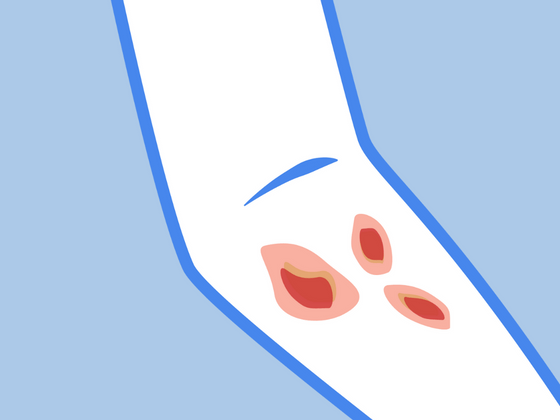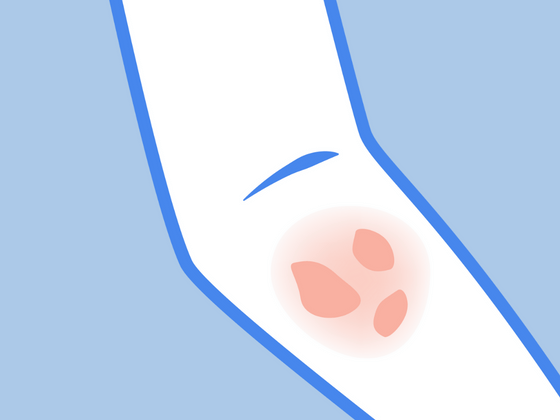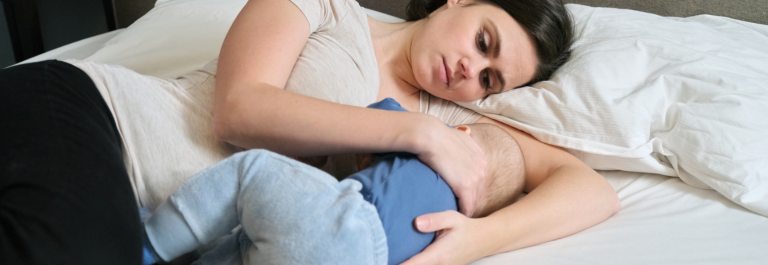It's no secret that seasonal allergies can be a real pest - and unfortunately for people with sensitive skin, a runny nose or itchy eyes might just be the least of your worries.
Environmental allergens such as pollen, dust mites, and mold can wreak havoc for eczema-prone skin, triggering your immune system and causing allergic skin rashes.
Throughout this post, we'll explore everything you need to know about:
-
The link between seasonal allergens and eczema
-
Common symptoms of skin rashes
-
Natural treatment methods for seasonal eczema
Keep reading to learn more about how seasonal allergies might be linked to your eczema flare-ups, discover natural treatments, and learn lifestyle tips to nourish your skin all year round.
What is Eczema?
Eczema (atopic dermatitis) is a chronic, long-term skin condition characterized by dry, scaly patches of itchy skin that typically develop across the backs of your knees the insides of your elbows, face, feet, and hands.
Allergies and Eczema: What's The Link?
People with eczema tend to have a weakened skin barrier and unbalanced skin microbiome, resulting in hypersensitivity to specific environmental allergens and irritants. This is especially important to consider when choosing eczema cream for babies and children with sensitive skin.
Contact dermatitis, for example, is a common form of eczema often triggered by an allergic reaction.
How Does An Allergic Reaction Work?
When seasonal allergens such as pollen come into contact with your skin, the immune system floods your bloodstream with histamine and other defensive chemicals. In turn, this activates your body's inflammatory response, leading to an outbreak of severely itchy skin.
In the case of photoallergic contact dermatitis, allergens only cause a rash if your skin is exposed to the sun. This may result in a delayed allergic response to sunscreen or shaving lotion products.
Environmental Triggers
Skin irritation and allergic reactions may also be caused by:
-
Poison ivy
-
Insect bites
-
Pet dander
-
Mold
-
Chemicals found within beauty and hygiene products, such as certain commercial soaps, nail polish, or shampoo
-
Certain metals, such as nickel
-
Synthetic fabrics such as polyester, latex, or nylon
Common Symptoms of Seasonal Allergies
An allergic skin rash can take on many forms; however, there are a few characteristic symptoms to keep an eye out for:
-
Scaly, dry skin patches
-
Itchy bumps, blisters, or welts
-
Prolonged skin sensitivity
-
Swelling and inflammation
-
Skin discoloration - rashes may appear red on paler skin and brown or ashen grey for people with darker skin tones
-
Cracked skin, which may bleed or weep
Beyond skin conditions, allergy symptoms may also include:
-
Sneezing
-
A blocked or runny nose
-
Stinging, weeping, or itchy eyes
-
Itchy throat or ear canals
Severe Reactions
In rare cases, an allergic reaction may also lead to more critical symptoms such as trouble breathing or persistent widespread allergic skin rashes.
If you suspect that you or a loved one might be having a severe reaction, we urge you to seek medical treatment immediately.
Treating Irritated Skin
Conventionally, eczema tends to be treated using a variety of medicinal interventions such as hydrocortisone cream, calamine lotion, or ultraviolet light therapy. However, many people prefer natural alternatives like eczema cream made from gentle, organic ingredients.
If you're eager to tackle your flare-ups using safe and natural home remedies, however, we have some suggestions for you:
Use A Soothing Moisturizer
Moisturizing regularly with natural products like beef tallow cream is a fantastic way to help replenish your skin barrier, building a more resilient protective layer against any future contact with allergens.
If your eczema is oozing, inflamed, or sore, we recommend this deeply nourishing Hot Skin Soother made from certified safe herbs. Gently rub into the affected area twice daily (or as often as required) to calm even the most angry-looking allergic rash.
Carry An Anti-Itch Spray
Especially when you're out and about, there's no knowing exactly when your eczema might flare.
To nip your skin allergies in the bud, we'd recommend carrying an anti-itch spray on the go to provide instant relief, such as this Eczemol OTC Topical Eczema Spray.
This eczema spray has four modes of action: antimicrobial, anti-inflammatory, antipruritic, and vasodilator, promoting faster healing by increasing oxygen and blood flow. Plus, it's been rigorously tested for safety, ensuring no dermal irritation or allergic reactions.
Wear Hypoallergenic Clothing
During an atopic dermatitis flare-up, wearing soft, breathable clothing is essential to allow your skin the best chance of healing quickly.
Particularly if you're coping with an allergic reaction, ensuring the clothes you wear are made from hypoallergenic materials is also helpful.
For nightwear, these 100% Organic Cotton Closed Eczema Mittens and 100% Organic Cotton Adult Pajamas Pant are a great solution to help prevent you from scratching your eczema and making your flare worse, allowing you to rest more deeply while soothing your skin.
Preventing A Skin Allergy Reaction
It's all good to treat your skin allergies once they've flared, but how do you prevent another outbreak of contact dermatitis in the first place? We've got some ideas for you:
-
Keep your windows closed to avoid pollen floating into your home, using air conditioning instead
-
Try dust-mite-proof covers
-
Keep your skin clean to wash the remnants of any lingering allergens away
-
Use detergent for sensitive skin, eczema soap, and beauty products made from gentle, natural ingredients
Soothe Your Skin Allergies Today
If soaring pollen counts have flared your eczema, don't fret! Follow these tips to help you soothe your aggravated skin today and better understand the possible link between seasonal allergies and sensitive skin.








